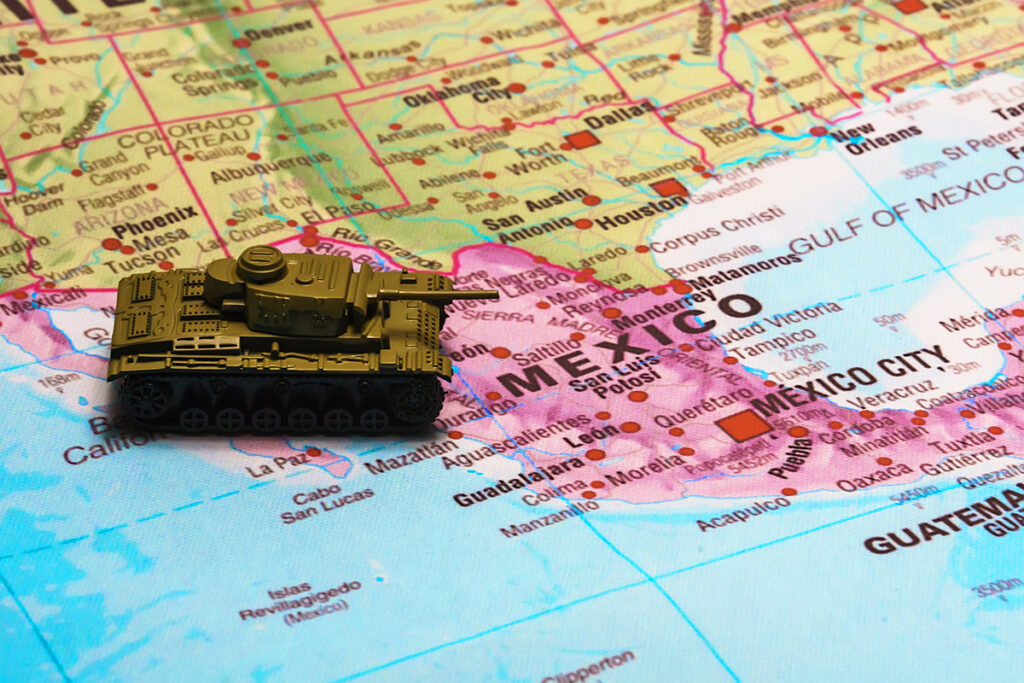In the rural town of Teuchitlan, Jalisco, a gated property adorned with two rearing white horse statues has become a symbol of both tragedy and hope. Once an alleged cartel training ground and execution site, the location has drawn families from across Mexico searching for missing loved ones.
Earlier this month, activist groups uncovered what they described as an “extermination camp” within the property, littered with bone fragments, ashes, and makeshift crematoriums. Among the remains were hundreds of shoes, backpacks, and personal belongings, offering painful clues to those still waiting for answers. The discovery sent shockwaves through Mexico, where cartel-related violence has persisted for nearly two decades. While mass graves are not uncommon, the evidence at this site suggested a more systematic approach to killings, deepening public outrage.
Investigation Raises Concerns
The case has ignited tensions between local and federal authorities. Mexico’s attorney general criticized officials in Jalisco for mishandling the investigation, revealing that they had known about the site since September but failed to properly process evidence or alert federal agencies. In response, the case has now been handed over to federal investigators, further amplifying scrutiny on the region’s law enforcement.
Despite its grim reputation, the property remained largely inaccessible to the public until recently. For the first time, families of the disappeared, along with journalists, were permitted entry under the supervision of authorities from both the state and federal attorney general’s offices. Many relatives had been demanding access for days, voicing frustration over the investigation’s lack of openness. In a country where over 124,000 people remain missing, families often feel abandoned by a justice system that rarely provides closure.
Families Face Harrowing Discoveries
For some, the visit to the ranch brought painful confirmations. Personal belongings, including backpacks and clothing, were identified by families who had spent years searching for any trace of their loved ones. One mother from Puebla state recognized her son’s possessions, confirming her worst fears after his disappearance in 2021. The discovery, while devastating, provided her with a sense of closure—an end to an exhausting and uncertain search.
The risks of speaking out about such findings, however, remain high. Threats against grieving families have been reported, with individuals receiving warnings to stay silent or face deadly consequences. The Jalisco New Generation Cartel, suspected of operating the site, has denounced the investigation in a social media video, claiming that the reports of an extermination camp were exaggerated to damage the group’s reputation.
Pressure on Mexico’s Leadership
The revelations in Teuchitlan have placed increased pressure on President Claudia Sheinbaum, who took office last October with a promise to combat violence and reduce homicides. The handling of the case is seen as a crucial test of her administration’s ability to address Mexico’s growing crisis of disappearances. Critics have pointed to the failures of her predecessor, Andres Manuel Lopez Obrador, arguing that little was done to stem the worsening security situation during his tenure.
Sheinbaum has defended her administration’s response, rejecting claims that the case represents a major weakness in her government. However, public frustration continues to mount as more families arrive at the site, desperate for answers. Many have waited years, navigating a system that offers little hope of finding the missing or bringing those responsible to justice.
Growing Outrage and Demands for Justice
Outside the ranch, emotions are running high. Families who traveled long distances to visit the site remain in anguish, demanding accountability for the thousands who have vanished under cartel rule. The sense of loss is overwhelming, with some acknowledging they may never recover their loved ones’ remains.
As the investigation continues, the “ranch of horror” stands as a stark symbol of the violence that has plagued Mexico. The search for justice is far from over, and for those still seeking answers, the struggle to uncover the truth remains relentless.


